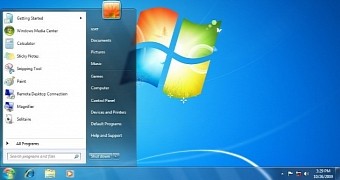Microsoft has silently released new updates for Windows 7 and 8.1 systems that are supposed to finally fix the botched Meltdown and Spectre patches failing to install on AMD computers.
The information the company provides on these new updates, however, raises several questions, as the documentation doesn’t clearly state whether patches KB4073578 and KB4073576 replace the previous Meltdown and Spectre fixes or not.
On the other hand, the only information that Microsoft provides for KB4073578 and KB4073576 is the following for Windows 7 and 8.1 computers, respectively:
An update is available to fix the following issue that occurs after you install January 3, 2018—KB4056897 (Security-only update) or January 4, 2018—KB4056894 (Monthly Rollup):
AMD devices fall into an unbootable state.
--
An update is available to fix the following issue that occurs after you install January 3, 2018—KB4056898 (Security-only update) or January 8, 2018—KB4056895 (Monthly Rollup):
AMD devices fall into an unbootable state.
As Ghacks notes, the same updates also appear to install correctly on Intel computers, and while they’re addressed to AMD machines, it’s not clear who is required to install them.
According to Microsoft’s official KB pages, these fixes were released on January 10, despite the company acknowledging the issues on AMD processors on January 11. An update made to the official page of KB4056897 and KB4056894 on January 12 points out that “this issue [with AMD processors] is resolved in KB4073578/KB4073576.”
Additionally, Windows update KB4073578 and KB4073576 were posted on the Microsoft Update Catalog on January 12 as well for both Windows 7 and Windows 8.1.
We’re still receiving reports from users struggling with these updates and it’s pretty clear Microsoft’s Meltdown and Spectre patches for AMD systems turned out to be a huge fiasco, leaving lots of computers in an unbootable state. Removing the original patches still seems to be the best workaround, though it’s worth knowing this means fixes for the hardware vulnerabilities are not deployed.

 14 DAY TRIAL //
14 DAY TRIAL //